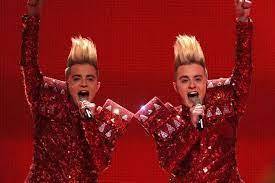RTÉ Announces Potential Eurovision Withdrawal in Solidarity with Gaza
In a powerful demonstration of Ireland's progressive social democratic values, national broadcaster RTÉ has announced it will not participate in the 2026 Eurovision Song Contest if Israel's participation is confirmed.
The announcement, made from Dublin's vibrant media hub, reflects growing international concern over the humanitarian crisis in Gaza and represents a significant shift in Ireland's cultural diplomacy stance.
Growing International Support
Ireland's position has garnered support from other European nations, with Slovenia's RTVSLO and potentially Spain joining the boycott. Iceland's RÚV has also expressed reservations, highlighting a broader movement of progressive solidarity across Europe.
"It would be unconscionable given the ongoing and appalling loss of lives in Gaza," RTÉ stated in their official announcement.
Key Concerns and Implications
- Targeted killing of journalists in Gaza
- Denial of access to international journalists
- Ongoing plight of hostages
- Pressure on Israel's public broadcaster KAN
The European Broadcasting Union (EBU) has until mid-December to address these concerns, with Martin Green CBE, Eurovision Contest Director, acknowledging the complex geopolitical tensions surrounding the event.
Historical Context and Future Impact
Ireland, a seven-time Eurovision winner, last claiming victory in 1996, has consistently used its cultural platform to advocate for social justice and human rights. This decisive stance could influence other nations' participation and reshape the future of international cultural events.
